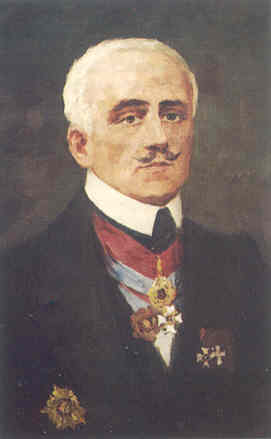Olympic Games
(Redirected from Olympics)
Olympic Games
The Olympic Games are a leading international sporting event featuring summer and winter sports competitions in which thousands of athletes from around the world participate in a variety of competitions. The Olympic Games are considered the world's foremost sports competition with more than 200 nations participating. The Games are held every four years, with the Summer Olympic Games and Winter Olympic Games occurring alternately every two years in the four-year period.
History[edit | edit source]
The origin of the Olympic Games can be traced back to 776 BC in Olympia, Greece. They were celebrated until AD 393 when they were suppressed by Emperor Theodosius I as part of the Christian campaign against paganism. The Games were revived in the modern era by Baron Pierre de Coubertin in 1896, with the founding of the International Olympic Committee (IOC). Since then, the Olympics have become a global event, promoting peace and unity through sports.
Modern Games[edit | edit source]
The modern Olympic Games are divided into the Summer and Winter Games. The Summer Olympics include a wide range of sports such as athletics, swimming, gymnastics, and cycling, while the Winter Olympics feature sports like skiing, figure skating, and ice hockey. The Games are hosted by different cities around the world, selected through a bidding process overseen by the IOC.
Symbols[edit | edit source]
The Olympic symbols include the Olympic rings, representing the union of the five inhabited continents (Africa, Americas, Asia, Europe, and Oceania) and the meeting of athletes from throughout the world at the Olympic Games. The Olympic flame symbolizes the light of spirit, knowledge, and life. Additionally, each Games has its own mascot, designed to represent the culture and heritage of the host country.
Controversies and Challenges[edit | edit source]
The Olympic Games have not been without their controversies and challenges, including doping scandals, political boycotts, and issues related to the cost and environmental impact of hosting the Games. The IOC has implemented reforms and policies to address these issues, including stricter doping regulations and sustainability guidelines for host cities.
Impact and Legacy[edit | edit source]
The Olympic Games have a significant impact on the host city and country, including improvements in infrastructure and increased international visibility. The Games also aim to promote the Olympic values of excellence, friendship, and respect, encouraging participants and spectators alike to strive for personal bests and mutual understanding.
Search WikiMD
Ad.Tired of being Overweight? Try W8MD's physician weight loss program.
Semaglutide (Ozempic / Wegovy and Tirzepatide (Mounjaro / Zepbound) available.
Advertise on WikiMD
|
WikiMD's Wellness Encyclopedia |
| Let Food Be Thy Medicine Medicine Thy Food - Hippocrates |
Translate this page: - East Asian
中文,
日本,
한국어,
South Asian
हिन्दी,
தமிழ்,
తెలుగు,
Urdu,
ಕನ್ನಡ,
Southeast Asian
Indonesian,
Vietnamese,
Thai,
မြန်မာဘာသာ,
বাংলা
European
español,
Deutsch,
français,
Greek,
português do Brasil,
polski,
română,
русский,
Nederlands,
norsk,
svenska,
suomi,
Italian
Middle Eastern & African
عربى,
Turkish,
Persian,
Hebrew,
Afrikaans,
isiZulu,
Kiswahili,
Other
Bulgarian,
Hungarian,
Czech,
Swedish,
മലയാളം,
मराठी,
ਪੰਜਾਬੀ,
ગુજરાતી,
Portuguese,
Ukrainian
Medical Disclaimer: WikiMD is not a substitute for professional medical advice. The information on WikiMD is provided as an information resource only, may be incorrect, outdated or misleading, and is not to be used or relied on for any diagnostic or treatment purposes. Please consult your health care provider before making any healthcare decisions or for guidance about a specific medical condition. WikiMD expressly disclaims responsibility, and shall have no liability, for any damages, loss, injury, or liability whatsoever suffered as a result of your reliance on the information contained in this site. By visiting this site you agree to the foregoing terms and conditions, which may from time to time be changed or supplemented by WikiMD. If you do not agree to the foregoing terms and conditions, you should not enter or use this site. See full disclaimer.
Credits:Most images are courtesy of Wikimedia commons, and templates, categories Wikipedia, licensed under CC BY SA or similar.
Contributors: Prab R. Tumpati, MD





